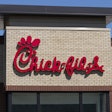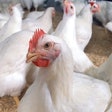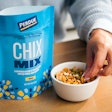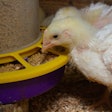Tyson Foods is looking to China as a key area to grow its revenue after the company reported a decline in earnings for the second quarter.
By stepping up its efforts to assure a safe food supply, Tyson officials said they believe their chicken products will set a standard that will win over reluctant Chinese poultry consumers.
Chinese, international markets show promise
Tyson Foods' international business units are presently performing well, according to Tyson CEO Donnie Smith. The markets in Mexico and Brazil have grown significantly when compared to 2012 numbers.
But Tyson managers are also optimistic about the company's future in China, despite the present avian influenza scare. "Although our production has not been directly affected by avian influenza in China, demand has softened for the entire Chinese poultry industry," said Tyson Foods Chief Operating Officer Jim Lochner. "Concerns with avian influenza have caused Chinese consumers to question their food safety."
Tyson Foods has implemented strong biosecurity measures to help quell these concerns. Tyson is continuing plans to develop its own growout houses in China, rather than buying birds from outside sources. Construction of poultry houses is underway, said Smith, but progress has been slower than anticipated because of land-use rights issues.
"We believe our modern methods and processes will make our chicken the preferred product and we'll be in a position to benefit in the long-term." said Lochner.
Smith said he expects the Chinese markets to pick up for Tyson in 2014. He also said their success in Mexico and Brazil will "more than make up the gap" during the interim.
Company continues development of value-added products
Since sales seem to be flat for many of Tyson's grocery and foodservice customers, said Smith, Tyson Foods also hopes to grow by placing a heavy focus on value-added products. "In addition to the quality and service Tyson is known for, we must continue to provide product innovation to drive traffic and sales for our customers, whether they are a quick service restaurant, a mid-scale restaurant, a big box retailer, a small grocery chain, a convenience store or a school district," said Smith. "Because of the weak demand, operators are more interested than ever in our new product ideas and business-building opportunities."
Gluten-free products are in heavy demand today, said Smith. Because of that, Tyson is marketing gluten-free chicken nuggets and other gluten-free breaded products.
Antibiotic-free meats are also in high demand. Tyson's Nature Raised Farms brand of fresh antibiotic-free chicken was launched successfully in February, and Smith said he expects that line to grow in popularity.
Tyson Foods is developing other value-added foods, as Smith is expecting "well over 100" new products to be introduced in fiscal 2013.
Second quarter results
Tyson's net income dropped 42 percent for the quarter ending March 30. It struggled with additional feed costs in its chicken and pork units, as well as reduced margins in its beef and pork divisions.
For the three-month period, Tyson's earnings were at $95 million, compared to $166 million the same time in 2012. Its revenues were at $8.42 billion, which was up from the $8.3 billion in 2012 but fell short of expectations of around $8.58 billion.
The chicken segment proved to be the most profitable for the company, said Smith, as prices were raised to help offset high feed costs. Tyson's chicken segment also benefited from consumers purchasing less beef amid high prices.
The company is now one month into its third quarter, and Smith said he is already seeing a turnaround. "Our third quarter is off to a really good start, and I believe we'll finish the back half strong and take a lot of momentum into Fiscal Year 2014," said Smith.
Smith and Lochner discussed the quarterly results and plans to improve revenues during a March 6 conference call with shareholders.













